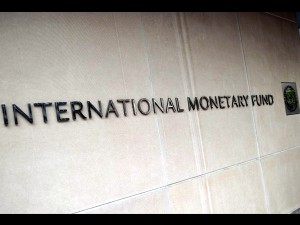MANILA, Philippines–The Philippines may outperform its neighbors once again, as it continues to build up buffers to insulate the economy from stresses dragging down the rest of the region.
Cheap fuel, strong sources of dollar income, a rising middle class and stable government spending will serve to boost the Philippines’ standing in the Asia-Pacific region, the International Monetary Fund (IMF) said on Thursday.
“Fundamentals are good. Potential growth across the globe is going to be lower but, in the Philippines, it’s rising,” IMF Resident Representative for the Philippines Shanaka Jayaneth Peiris said during a press conference.
IMF released its biannual Regional Economic Outlook (REO) report this week, which showed that the Philippine economy could grow by 6.7 percent in 2015, and 6.3 percent in 2016.
Last year, the country’s gross domestic product (GDP) expanded by 6.1 percent.
Both forecasts are below the Philippine government’s targets.
Even as the country struggles with external shocks, the effects on the domestic economy will remain subdued, Peiris said.
One such shock is the “asynchronous” monetary policy settings in advanced economies—both Europe and Japan are easing policy rates by pumping more cash into the economy. Also, the US Federal Reserve has announced plans to mop up excess cash from its system.
This divergence has and will continue to lead to volatile conditions in financial markets, the IMF said. Tighter conditions in the United States may also lead to more expensive financing in Asia.
Slowing growth in Japan and China, the major trading partners of smaller Asian economies like the Philippines, may also lead to slower growth.
The Philippines benefits from ample dollar reserves—enough to cover more than 10 months of imports—that will keep the peso firm. The economy also benefits from strong remittances from overseas Filipino workers, and earnings from the outsourcing and tourism sectors.
Declining levels of the government’s foreign debt may also protect the Philippines from volatility in foreign exchange markets.
“Pressure won’t be as strong as in other countries,” Peiris said.
